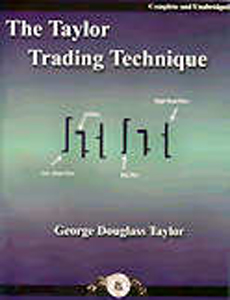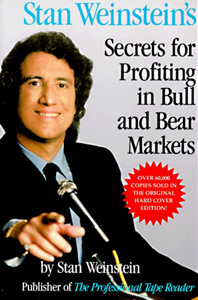Dividend Imputation
Further Reading
The term "Dividend Imputation" refers to a particular corporate taxation system under which the tax paid by a business organisation is attributed completely or partially to the investors (shareholders) in the form of tax credit which allows the organisation to slash its income tax payable on the distribution of its earnings.
The dividend imputation system is widely practiced in Australia and New Zealand where in UK, they have a "modified imputation system". The dividend imputation system was available in France as well until 2004. In Australia, they have this system which enables the companies to attach “franking credits” to the dividends paid. The companies get benefited from this system as those credits represent company tax paid already. In addition to this, the distributed profits of the company is taxed only once at the tax rate of the shareholders.
Corporate Profits and Dividend Imputation
The corporate profits were subject to two different taxes before 1987. At first the companies had to pay taxes on their earnings and secondly the individual investors who had shares in that company were subject to income tax on the dividends that they received from the company. However, this practice was seen as an unfair way of taxing due to the fact that the companies which were providing the dividends were already taxed for the underlying profits.
Later the duel tax system was replaced by the "dividend imputation" system which allows the companies to distribute dividends after being taxed on their earnings but the process eliminates the system of double taxation. Say for example, if a company is required to pay 30 percent of tax with a gross profit of $100, then it will have to pay a tax worth of $30 and will record $70 worth of net profit.
The shareholders who are receiving the franked dividends are then treated, due to the tax purposes, since they receive an assembled income both the dividend and imputation credit associated, and as having pre-paid as tax an amount which is equivalent to the imputation credit. The shareholders who are required to pay tax under a marginal rate lower than the company rate becomes entitled to a refund of an amount which has been overpaid. The refund may now be available to be paid in the form of cash if not required to make adjustments for the tax.
Unfranked Dividends
In case of Australia, sometimes companies distribute "unfranked" dividends. Say for example, in case of a company that earned profit abroad which did not result in the payment of taxes to the government of Australia. Sometimes companies go for distributing “partially franked” dividends as well where the franked portion divided by the entire amount is termed as “franked ratio”.
Glossary List- How to Trade Forex and Gold Options
- How to Trade the Gold Price and Profit!
- Forex Trading the EUR/USD Pair € EURO and $ US Dollar
- How to Trade Stock Market Indices S&P500
- How to Trade Crude Oil
- Forex Trading Psychology
- What Are Broker Recommendations?
- Free Tickets to Trading & Investing Seminar & Expo ($18) Brisbane 2013
- Stock Calc App
- All About Warrants
- Introduction to Exchange Traded Funds
- Introduction to Exchange Traded Funds: Features
- Introduction to Exchange Traded Funds: Domestic ETFs
- Introduction to Exchange Traded Funds: International ETFs
- Exchange Traded Commodities
- Australian Stock Scan
- Australian Online Share Trading
- List of Trading Books
- Interesting Thoughts about the Australian Dollar
- What's the Meaning of Hawkish?
- Do You Know How To Use the P/E Ratio
- Trading, Religion and Politics - Do They Have Anything in Common?
- Shares that are Volatile that Double and Half in the Short Term
- Telstra (TLS) T3
- Margin Call by E-mail
- The Cost of Holding a Position
- Lack of Disclosure: Compensation from ASX Listed Company
- Unrealistic Returns and Benchmarks
- CMC Markets Down
- Quality versus Quantity Forex Trading
- Woolworths 1H Sales $30.7bn up 3.2%
Date added 31-01-2013 - ASIC Fines CommBank's CommSec
Date added 25-09-2012 - Industry Super Network Calls to Ban High Frequency Trading (HFT)
Date added 22-09-2012 - NAB Launches Online Share Trading Platform
Date added 19-09-2012 - Reserve Bank of Australia Says 23 Countries Holding AUD
Date added 18-09-2012 - Australia Post Digital Mailbox
Date added 10-09-2012 - Winners and Losers of Trading for Week 2
Date added 16-01-2012 - 2012's First Week of the Best and Worst Traded Stocks
Date added 09-01-2012 - 2011's Last Best and Worst Traded Stocks
Date added 05-01-2012 - Best and Worst Pre-Christmas Traded Stocks
Date added 30-12-2011 - Trading Winners and Losers for Dec. 12-16
Date added 19-12-2011 - Best and Worst Traded Stocks for Dec. 5-9
Date added 13-12-2011 - Top 3 Best and Worst Traded Stocks
Date added 05-12-2011 - ASX Glitch Trading Halt
Date added 27-10-2011 - Worst Trade Stocks (and the Best)
Date added 06-08-2011
Top 150 Public Companies Listed on the Australian Stockmarket as at 29/05/2009
- BHP Billiton
- Westpac Banking Corporation (WBC)
- Commonwealth Bank of Australia (CBA)
- National Australia Bank (NAB)
- Telstra (TLS)
- ANZ
- News Corporation (NWS)
- Woolworths Limited(WOW)
- Woodside Petroleum Limited (WPL)
- Rio Tinto
- Westfield Group (WDC)
- Westfarmers Limited (WES)
- QBE Insurance
- CSL
- Newcrest Mining Limited (NCM)
- Origin Energy Limited (ORG)
- Santos Limited (STO)
- AMP Limited (AMP)
- Macquarie Group (MQG)
- Foster’s Group Limited (FGL)




